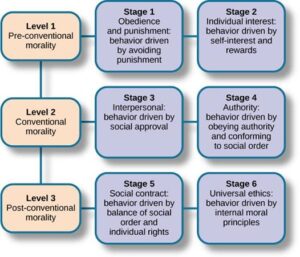What is Authoritarian Aggression?
It’s striking how often authoritarian aggression happens in dark and cowardly ways, in the dark, by cowards who later will do everything they possibly can to avoid responsibility for what they did.
Authoritarian followers are aggressive, but only when they believe that they are punishing a wrong-doer and only when they believe that the risk to them is minimal. Wrong-doers can include wives and children who fail to live up to the rules of these authoritarian followers (who get to be authoritarian leaders in their own homes). The people that authoritarians attack are frequently defenseless, or at least at a significant disadvantage. And when the would-be target of this morally righteous authoritarian aggression is too powerful to take on, one-on-one, then it’s time to call out the posse.
Indeed, Authoritarians seek to punish law-breakers to a ludicrous extent. They probably think the crimes are more serious than they are because they have so little experience in the world. The high saliency of a crime that they’re thinking about is likely to make them feel personally unsafe. Their delight in punishing others probably stems from the fact that they harbour desires that they don’t act on, and that they would expect to be punished for if they did. As such, they get the vicarious thrill of knowing about the person’s “crime” and the direct pleasure of enacting righteous punishment.
Wrong-doers don’t just include people who break the law, but also people who aren’t behaving in socially appropriate ways; hence why the right wing media in the US has been successfully pointing the authoritarian portion of their audience at homosexuals and transgender people. It’s red meat to a crowd who like to get self-righteously riled up. The increase in hate crime just from Trump being on the campaign trail, let alone president, is well attested.
If a person that the Authoritarian follower looks up to tells them to go out and attack people whose description matches that of authoritarian followers, they would do just that. This is the product of two things about authoritarians; they are so self-blind that they wouldn’t recognise themselves in the description of authoritarians (because they see themselves as good people, so a description of a bad person can’t possibly be describing them) and, relatedly, they are monumentally hypocritical, decrying behaviour in others that they themselves would engage in. If they – as good people – do it, then it’s good, but if others do the same thing, it’s bad, even if they do it for the same reasons (see also Cognitive Dissonance [1], [2], [3]).
Many people would recognise this sort of behaviour as pretty far from righteous or even moral, but it is both of these things if your morality is more along the lines of ‘might makes right’. While not covered in Bob Altemeyer’s ‘The Authoritarians’, it is maybe worth doing a brief aside on Lawrence Kohlberg’s ‘Stages of Moral Development’.
Kohlberg’s model (see image below) is frequently presented with age-ranges alongside each of the stages, mostly as a reflection of its genesis in the developmental psychological work of Jean Piaget. Children are typically shown as passing through Level 1 up to the age of seven or eight, and through Level 2 by the time of their early teenage years, and thus potentially moving into Stage 5 in their late teens and, maybe, eventually reaching Stage 6.

Image from: oneworldhousenet.net
Authoritarian morality, or at least their orientation toward doling out punishment to transgressors, is driven by Stage 4 thinking, at most. However, their preference for overwhelming odds and vulnerable targets is redolent of Stage 1. This is their hypocrisy again: I can act like a toddler (Stage 1), but I can punish you for failing to accept the same authorities as me (Stage 4). Their behaviour seems to suggest that they couldn’t even conceive of Stages 5 or 6 as existing. Indeed, in later writing on the theory, Kohlberg suggested that only around 15% of people engage in Stage 5 & 6 moral reasoning. This is to say that engaging in Stage 4-type moral reasoning would see Authoritarians mixed in with the majority of people, but their being anchored down at Stage 1 for some of their behaviours, sees them far behind their peers.
Notice that Stages 3 and 4 appear in what Kohlberg called Level 2 or ‘Conventional Morality’. This conventionality, not just in moral reasoning, but in everything else, is the third key aspect of Altemeyer’s definition of an Authoritarian. As such, the next instalment will be a brief discussion of Authoritarian conventionality.
Further reading on Cognitive Dissonance
[1] Internet Archive of Leon Festinger’s 312-page book on Cognitive Dissonance (1957; 1968 reprint)
[2] A thorough summary (11-page PDF, but only about six pages of reading)
[3] An introduction to a modern analysis of the theory (22-page PDF, around 17 pages of reading).
